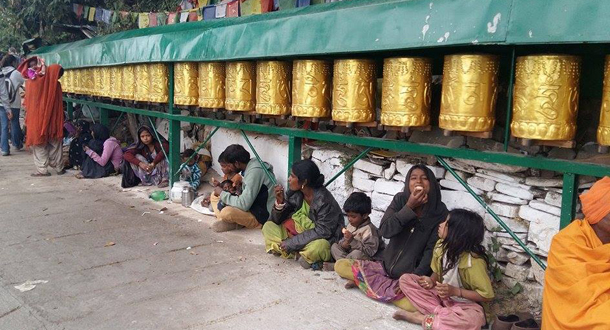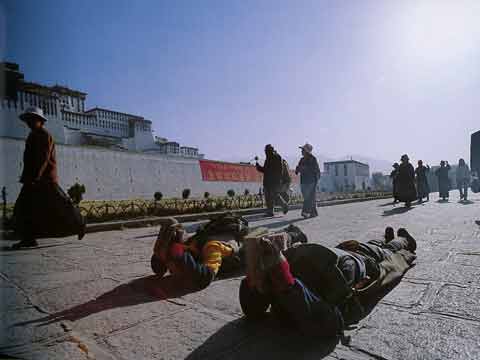 Saka Dawa is considered the most holy festival for Tibetan Buddhism, which falls in the fourth month of the lunar calendar. The festival celebrates the main events in the life of Buddha Shakyamuni, including his birth, enlightenment, and Parinirvana (nirvana after death).
Saka Dawa is considered the most holy festival for Tibetan Buddhism, which falls in the fourth month of the lunar calendar. The festival celebrates the main events in the life of Buddha Shakyamuni, including his birth, enlightenment, and Parinirvana (nirvana after death).
Saka is the name of the star that is closest to the earth and Dawa means month in Tibetan. This year Saka Dawa started from May 19 and ends on June 16. The 15th day of the month, a full moon day, is the most holy of all which falls on June 2 this year. Tibetan Buddhists believe that good actions during the whole month would accumulate merit, especially on the 15th day. The merits of any good deed are believed to multiply by hundred million times during the month. Therefore, people often engage in extra good things.
Circumambulating, reciting mantras, making prostrations, fasting, shunning meat, releasing captive birds and fishes, giving alms to the poor and visiting temples are some of the most common things that are done during Saka Dawa.
In Tibet, Tibetans would walk or prostrate around the Potala Palace, the seat of His Holiness the Dalai Lama, and also around other holy temples. Some would prostrate all the way from their villages to Lhasa for months. In the exile-seat of His Holiness the Dalai Lama, beggars would take their spots at the Lingkor (the path around the residence of His Holiness) in Dharamshala. This year, His Eminence Professor Samdhong Rinpoche gave a teaching at 4 am on June 2 at Tsuglakhang, the main Tibetan temple. The teaching was an introduction to vows of practices and observances (Nyung-ney) taken voluntarily by monks, nuns and public alike on specific days of religious importance.






 Print
Print Email
Email